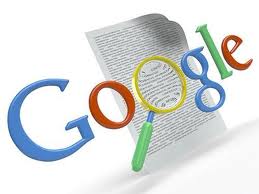SEO Singapore SEO = Search Engine Optimization | Local and Worldwide
A Singapore SEO Service you can trust.
SEO and Google
Google—originally called BackRub and set up in the garage of a friend of creators Larry Page and Sergey Brin—was first officially collaborated on in 1996. By 1998 it was already recognized as the search engine of choice in the Top 100 Web Sites for 1998 of “PC Magazine”. In 2000, Google launched its first billion-dollar URL index, officially becoming the largest world’s largest search engine. Since then, Google has evolved, remaining the world’s largest search engine, but continuously growing to include over 72 language preferences and the source of such creations as the Android Market, Google Earth, Google +, Google Maps, and the owner of YouTube.
Google is one of the most universally used search engines in the world.
If an optimizer is already aware of the unique algorithms of each search engine and the vast differences in importance of ranking factors that they create, then the optimizer is generally aware that it is very hard to optimize a webpage for multiple search engines—of course, it is completely possible, but sometimes very difficult. For beginners, it is especially important to focus in on one search engine. Optimizers need to extensively research the algorithm and methods of their chosen search engine so as to understand the nuances of each search engine’s algorithm.
Due to the general popularity of Google, it is often one of the most commonly chosen search engines to try and optimize a webpage for. Basic knowledge of the history of the company and statistics of its demographics and use are important, but what is most important to successfully optimize a webpage for an individual search engine is an understanding of its algorithm.
Of course, content for the visitors of the webpage is one of the most important aspects for optimizing a web page. Webpages are created for visitors, so it is the visitors that must be in mind when webpages are created. Search engines, however, are an extremely close second when it comes to audience for optimization.
First, in Google search results, optimization will only affect organic search results. At the top of every result page are paid or sponsored websites. Optimizing a webpage for Google will not allow it to be at the top of the page, among the sponsored websites. Those are a different category entirely
Some of the following suggestions are universally positive for all websites and others are specifically concerning Google:
· Create accurate, unique, and descriptive title tags for the website
· Short titles (Google only displays a certain length of title)
· Include keywords in description of webpage
· Create unique tags for each new page (allows Google to differentiate)
· Provide meta tags (summaries of information)
· Use simple and descriptive URLs
o Leads to better search engine crawls (relevant words in URL)
o Makes website appealing for linking
· Use mostly text for navigation
· Market your site WELL through social media (Ex. blogs, emails, forums)
· Create relevant and descriptive anchor text
· Optimize picture content and “alt” attributes (easier for Google Image Search)
· Notify Google of mobile sites
There are, of course, many other methods that can be used to optimize a webpage or site. Simple searches of online sites that provide tips are one of the best ways to learn about all of the changes that can be made to optimize a webpage.
Additionally, one of the best ways for optimizers to work with Google is to be aware of the services that they offer. Search engines want optimizers, web pages, and their creators to work with the algorithms, systems and crawlers that they use because Google, like the webpage creators, wants to offer a service to internet users. This is why Google, recognizing that algorithms are long and hard to understand, offers what is often called a “trifecta” of services that webpages can utilize to learn methods to optimize within Google. The three services are Google Webmaster Tools, Google Analytics, and Google Website Optimizer.
Webmaster Tools provides users with detailed accounts of visibility of webpage to Google. Analytics can be used by webpage owners to learn how searchers react to their web page, popularity of their web page, and impact of optimization on search results. Google Optimizer, perhaps the most useful of the three services, allows users to run experiments on their webpages to identify on-page changes that can be made to the web page for optimal optimization.

![Validate my RSS feed [Valid RSS]](/images/valid-rss-rogers.png)